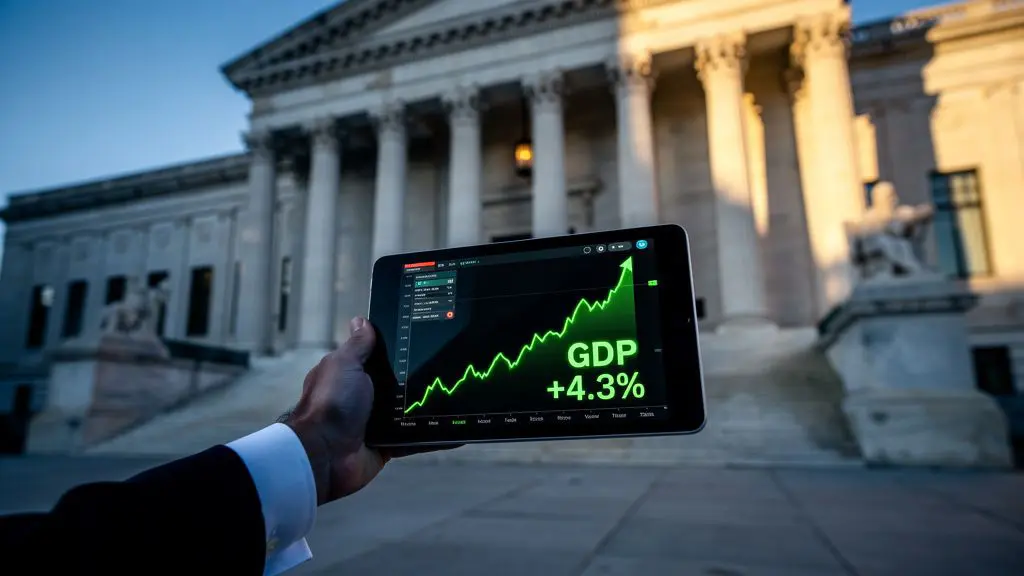WIKIFX REPORT: Standard Bank announces Africa Trade Barometer
Abstract:Standard Bank has launched Africa Trade Barometer, which is expected to become Africa’s leading trade index.
Standard Bank has launched Africa Trade Barometer, which is expected to become Africas leading trade index.

Philip Myburgh, Head of Trade and Africa-China at Standard Bank, said that present in 20 African markets and supporting trade activities in many more, Standard Bank enjoys a uniquely privileged view of Africa, “especially its rapidly emerging enterprises heavily focused on domestic, cross-border and global trade.”
Trade is deeply rooted in Africas DNA and integral to its history and future development.
As such, Myburgh believes Africa‘s largest bank by assets and so single-mindedly committed to Africa’s growth has a duty to “leverage its privileged position, presence and insight to intelligently inform and grow the continents trade ecosystem.”
Over the long term, rapidly growing markets in East and West Africa and the re-emergence of global growth post Covid-19, currently combine with the broadly ratified African Continental Free Trade Area (AfCFTA) to present considerable opportunity for Africas small, medium, and larger domestic businesses.
Short-term challenges also demand closer coordination.
Current geopolitical volatility only highlights the importance of cross-border and regional African trade.
Food inflation in Africa as well as outright shortages of African staples like wheat underline the urgency of building much closer economic cooperation across the continent.
Trade offers Africa the opportunity to offset supply chain shocks while managing the worst effects of inflation, high interest rates and currency depreciation.
“Since insight is key to leveraging trade to build resilience, our Africa Trade Barometer couldnt be launching at a better time,” added Myburgh.
In a world of disrupted local and global supply chains - and on a continent with significant development and infrastructural challenges - businesses face a daunting array of both new and perennial risks. Understanding and resolving pain points as businesses leverage trade to drive growth in this complex risk and opportunity landscape, requires insight – ideally informed by an on-the-ground presence and proven capability across the continent.
Standard Banks Africa Trade Barometer will focus initially on Angola, Ghana, Kenya, Mozambique, Namibia, Nigeria, South Africa, Uganda, Tanzania and Zambia.
The Barometer, which aims to publish twice a year, currently shares comparative data on trade openness, access to finance, macroeconomic stability, infrastructure, foreign trade, governance, economy and trade finance behaviour.
Qualitative and quantitative intelligence gathered from 2,400 firms representing SMEs, large family businesses, corporates and multinationals across all 10 economies is analysed and then augmented with third-party sources including the World Bank, International Trade Center, and individual country central banks.
The result “presents one of the most comprehensive views of actual trade as experienced on the ground by real African businesses,” said Myburgh.
Trends and analysis gleaned will also provide insight into the broader regions that the 10 study markets represent.
This unique view of African trade will provide a valuable resource for businesspeople, students, governments, NGOs and investors considering the continent – as well as African entrepreneurs - to assess and leverage Africas considerable trade opportunity, currently estimated in the region of $70bn annually.
“We expect the Africa Trade Barometer to become the leading index of African trade trends, activities and developments as Africa‘s small, medium and large businesses define the continent’s next stage of domestic growth and regional and global expansion,” concluded Myburgh.
Read more

US GDP Surges 4.3%, Deepening the Trump-Fed Policy Rift
The US economy expanded at a blistering 4.3% annualized rate in the third quarter, shattering forecasts and handing the Trump administration a rhetorical victory. However, beneath the headline number lies a complex economic and political battlefield that is complicating the Federal Reserve's policy path.

US Fiscal Monitor: Efficiency Office Cuts Jobs, But Spending Hits New Highs
The anticipated fiscal consolidation in the United States faces structural headwinds, keeping upward pressure on US debt issuance and long-term yields.

Common Questions About Exnova: Safety, Fees, and Risks (2025)
If you are browsing social media or trading forums in regions like Latin America or Southeast Asia, you have likely come across ads for a broker named Exnova. They are currently experiencing a surge in popularity, holding an "A" ranking in Influence according to our data, with significant traffic coming from Mexico, Brazil, Colombia, and Indonesia.

Common Questions About MIFX: Safety, Fees, and Risks (2025)
If you are looking into the Indonesian forex market, you have likely crossed paths with MIFX (Monex Investindo Futures). They are significantly influential in Southeast Asia, particularly Indonesia, with a footprint expanding into Malaysia and Vietnam. But popularity doesn't always equal safety.
WikiFX Broker
Latest News
Scam Victims Repatriated: Malaysia Thanks Thailand’s Crucial Help
Why You’re a Millionaire on Demo but Broke in Real Life
Year of the Fire Horse 2026: Which Zodiac Signs Have the Strongest Money Luck in Trading?
JPMorgan Chase Eyes Crypto Trading for Institutional Clients
Voices of the Golden Insight Award Jury | Dennis Yeh, Head of Asia Pacific Region at Taurex
Fake Government Aid Scams Are Wiping Out Elderly Savings
The "Paper Money" Lie: Why Your Demo Win Streak Means Nothing
QuoMarkets Review 2025: Safety, Features, and Reliability
The Richest Traders in History and the Strategies Behind Their Success
Credit Suisse Hit With $7.1M Fine Over Supervisory Failures
Rate Calc


